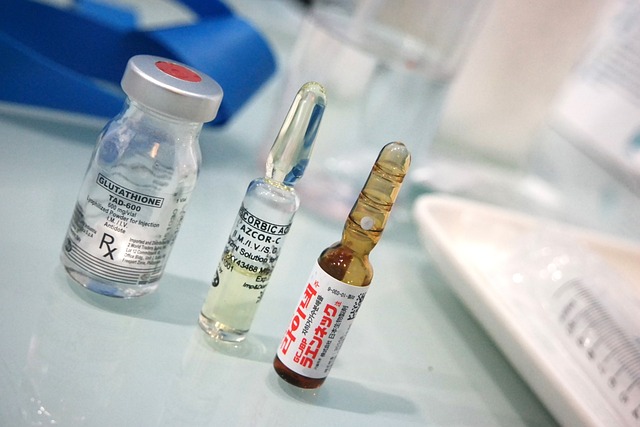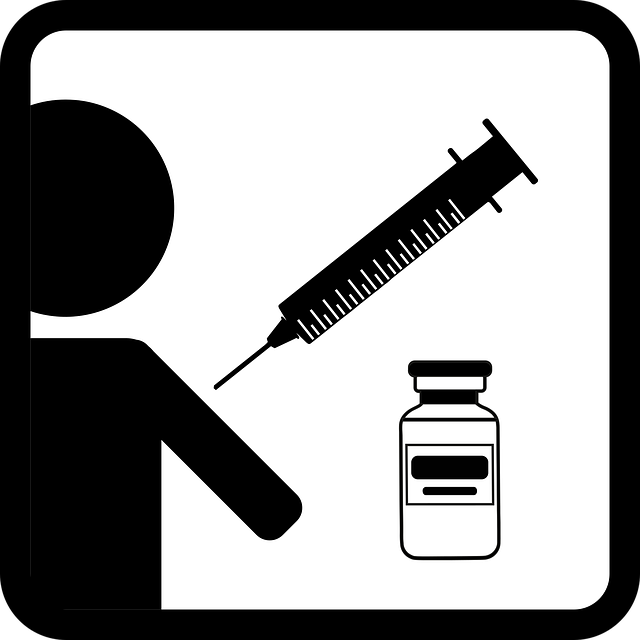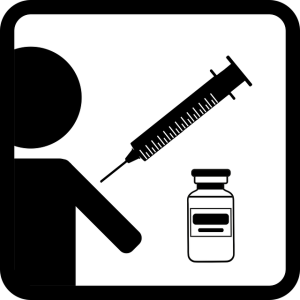Patient adherence to medication regimens, especially with semaglutide injectables, is crucial for effective diabetes and weight loss management. Barriers like complexity, inconvenience, and fear of pain can be addressed through patient education, personalized care plans, and practical solutions offered by healthcare providers. The semaglutide injectable form, revolutionizing diabetes care with a once-weekly injection, requires understanding patient conditions and social support to enhance adherence. Educational interventions, visual aids, and follow-ups improve patient confidence and compliance. Tailored care plans, flexible dosing, and digital health tools further boost adherence and treatment outcomes over time.
Patient adherence to injections, especially those managing diabetes like semaglutide, is a cornerstone of effective treatment. This comprehensive guide explores the multifaceted aspects of patient adherence, focusing on the semaglutide injectable form. We delve into barriers, education strategies, healthcare provider roles, and personalized approaches to enhance response rates. Additionally, we discuss the long-term impact of consistent injections, address common concerns, and look towards technology’s role in future diabetes care.
Understanding Patient Adherence: The Foundation of Effective Treatment

Patient adherence, or how well individuals follow their treatment plans, is a critical aspect of healthcare, especially when it comes to medications administered through injections like the semaglutide injectable form. It serves as the foundation for effective treatment, as consistent adherence ensures that patients receive the full benefits of their prescribed therapy. When patients adhere to their injection schedules, they are more likely to achieve desired outcomes and maintain better overall health.
Several factors influence patient adherence, including understanding the condition, perception of medication’s importance, social support, and convenience of the treatment regimen. Healthcare providers play a pivotal role in enhancing adherence by ensuring patients grasp the significance of their injections, addressing any concerns, and offering practical solutions to streamline the administration process.
Semaglutide Injectable Form: Unlocking Diabetes Management

Semaglutide, a significant advancement in diabetes management, has revolutionized treatment through its innovative semaglutide injectable form. This formulation offers a once-weekly injection, providing patients with greater convenience and flexibility compared to daily insulin injections. The semaglutide injectable form mimics the natural hormone GLP-1, which stimulates insulin production and suppresses glucagon release in response to food intake.
This tailored approach not only enhances patient adherence but also leads to improved glycemic control. By emulating the body’s natural processes, it promotes a more sustainable and patient-friendly diabetes management regimen. The convenience of a once-weekly injection encourages consistent dosing, making it easier for individuals with busy lifestyles to manage their condition effectively.
Barriers to Adherence: Exploring the Challenges Patients Face

Many patients face challenges when it comes to adhering to injection regimens, particularly with the increasing use of semaglutide in various therapeutic areas. Barriers to adherence can be multifaceted and often unique to each individual’s circumstances. For instance, patients might struggle with the perceived complexity of administration, especially if they are unaccustomed to self-injecting medications. The inconvenience and potential discomfort associated with injections can also demotivate patients, particularly those required to administer multiple times a week.
Furthermore, social and economic factors play a significant role. Limited access to healthcare resources, such as proper training on injection techniques or even the cost of semaglutide itself, can hinder patient adherence. Additionally, cultural beliefs and fear of pain may influence their willingness to engage in regular injections. Addressing these barriers is crucial for optimising treatment outcomes and ensuring patients receive the full benefits of injectable medications like semaglutide.
Enhancing Patient Education for Better Injection Practices

Patient education plays a pivotal role in enhancing adherence and response to injections, especially with medications like semaglutide, which is available in injectable forms. By providing clear, comprehensive information tailored to individual patients, healthcare providers can empower them to understand their treatment regimen better. This includes demonstrating proper injection technique, explaining the benefits of adherence, addressing potential side effects, and offering practical tips for storing and administering the medication correctly.
Through educational interventions, patients can gain confidence in self-injecting, reduce anxiety associated with needles, and improve overall compliance. Visual aids, written materials, and interactive sessions have proven effective in enhancing understanding. Additionally, regular follow-ups allow healthcare professionals to address concerns, dispel myths, and reinforce the importance of consistent injection practices for optimal therapeutic outcomes.
The Role of Healthcare Providers in Promoting Adherence

Healthcare providers play a pivotal role in promoting patient adherence to injections, especially with medications like semaglutide in its injectable form. They serve as key guides and educators, ensuring patients understand the importance of regular administration for effective treatment. Through clear communication, healthcare professionals can help dispel fears or misconceptions surrounding injections, fostering a sense of comfort and empowerment among patients. Customized adherence plans tailored to individual patient needs further enhance their willingness to maintain consistent medication use.
Moreover, providers’ active listening and empathetic approach encourage open dialogue about any challenges faced in the injection process. This includes addressing logistical barriers such as accessibility or scheduling issues, as well as offering practical solutions like demonstrating proper injection techniques or providing alternative delivery methods if necessary. By involving patients actively in their care journey, healthcare providers strengthen adherence, ultimately leading to improved treatment outcomes.
Personalized Strategies for Improving Response Rates

Personalized strategies are key to improving patient adherence and response rates, especially for medications delivered via injections like the semaglutide injectable form. Healthcare providers should consider individual patient needs, preferences, and barriers to treatment when designing care plans. For instance, offering flexible dosing schedules or alternative injection sites can enhance comfort and compliance. Additionally, providing clear instructions, using visual aids, and offering support through counseling sessions or mobile apps can significantly improve patient understanding and willingness to adhere to their injection regimes.
Tailoring interventions to specific demographics or patient groups can also prove effective. For example, educational programs targeted at the elderly might focus on simplifying injection techniques and addressing age-related concerns about pain or dexterity. Similarly, engaging young adults might involve leveraging social media platforms or peer support networks to promote adherence. By employing personalized strategies, healthcare systems can optimize patient response rates, ultimately leading to better health outcomes.
Long-term Impact of Consistent Semaglutide Injection on Health Outcomes

The long-term impact of consistent semaglutide injections on health outcomes has been a subject of growing interest in medical research. Studies have shown that regular administration of this injectable form of semaglutide can lead to significant improvements in various health parameters over time. For individuals with chronic conditions such as type 2 diabetes, consistent adherence to semaglutide therapy has demonstrated reduced HbA1c levels, a key marker for long-term blood sugar control. This not only improves overall metabolic health but also reduces the risk of associated complications like cardiovascular diseases and kidney damage.
Moreover, sustained use of semaglutide injections has been linked to weight management benefits, as it can aid in substantial weight loss and help maintain that loss over extended periods. This dual effect of improving glycemic control and facilitating weight management makes semaglutide a promising treatment option for patients requiring long-term management of chronic metabolic disorders.
Addressing Common Concerns and Misconceptions about Injections

Many patients express concerns and misconceptions about injections, which can hinder their adherence to treatment regimens. It’s essential to address these fears openly to improve patient satisfaction and compliance. One commonly used injectable form, semaglutide, has gained popularity for its effectiveness in managing diabetes and weight loss. However, some individuals worry about the injection site, potential pain, or side effects. It’s crucial to reassure patients that modern injections are often quick and relatively painless, thanks to advanced technologies and improved formulations.
Healthcare providers should educate patients on the benefits of semaglutide injections, such as their convenience compared to oral medications and their ability to provide precise doses. By dispelling myths about injections, healthcare professionals can foster trust and encourage patients to view these treatments as effective tools in their healthcare journey.
Future Directions: Technology's Role in Patient Adherence and Diabetes Care

As technology continues to advance, there is a growing potential for innovative solutions to enhance patient adherence and diabetes care. The future looks promising with the integration of digital health tools tailored to support individuals with type 2 diabetes. For instance, mobile applications and wearable devices can remind patients when it’s time for their semaglutide injections, offer educational content on managing diabetes, and even track blood glucose levels in real-time. These technologies aim to simplify self-management, making the process more user-friendly and engaging.
Additionally, telemedicine and remote monitoring systems enable healthcare professionals to provide continuous support and guidance. Through virtual consultations, patients can seek advice, address concerns, and receive personalized recommendations. Remote monitoring allows for early detection of deviations from optimal blood sugar control, prompting timely interventions. The combination of these technological advancements holds the key to improving patient adherence, particularly with the increasing availability of semaglutide injectable forms, ultimately leading to better diabetes management and health outcomes.
